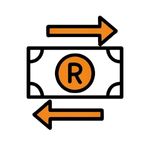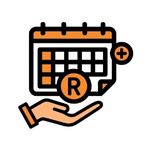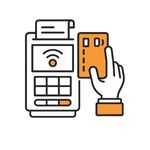
Starting to invest does not require a large amount of money. Many South Africans are under the impression that investing is only for people with thousands of rands in savings, but this is not true. With the right tools, accounts, and platforms, even someone with as little as R100 per month can begin to grow their money over time. If you’re a student, an entry-level worker, or someone simply trying to build wealth from scratch, this article will show how to take the first steps toward a more financially secure future, without needing large sums of cash upfront.
Key Takeaways
- You Can Start Investing With Just R50–R100: South Africans do not need large sums of money to begin investing. Micro-investing platforms and tax-free savings accounts offer accessible entry points.
- Different Investment Types Suit Different Goals: Options like TFSAs, ETFs, stocks, and government bonds cater to a range of risk levels and return expectations. Matching your investment to your financial goals is essential.
- Understand Risk, Returns, and Access: Before choosing an investment, assess how much it may grow, how long it takes to access the funds, and the level of risk involved. Some products offer stability, while others require market awareness.
About Arcadia Finance
Get your loan quickly and securely with Arcadia Finance. Pay no application fees and choose from 19 trusted lenders, all registered with South Africa’s National Credit Regulator. Experience a smooth, reliable process designed to match your financial needs.
Why Investing Matters
Money loses value over time. Unfortunately, the money you save today will not hold the same purchasing power in the future. You might have heard older generations mention how much cheaper groceries or petrol were in the past. This is due to inflation, which means the value of goods and services increases over time, while the Rand’s buying power decreases.
Inflation reduces purchasing power. For example, if you can buy ten loaves of bread today for R100, next year you might only be able to buy eight loaves for the same amount. While salaries often increase to keep up with inflation, they do not always rise at the same rate.
Saving alone is not enough. If you put R100 000 into a savings account and plan to use it in 20 years, the amount will not stretch as far as it does now. This is why investing becomes necessary. By putting money into investments that grow over time, there’s a better chance that your returns will outpace inflation, turning your R100 000 into something more substantial, such as R300 000 or higher.

Steps To Get Into Investing In South Africa
Set Clear Financial Objectives
Before you put any money into investments, make sure you have a clear idea of what you hope to achieve. If you’re aiming to save for a short-term target such as a holiday or a long-term plan like retirement, having defined goals will help you choose the most suitable investment options.
Know Your Risk Threshold
All types of investments carry some degree of risk. You should assess how much risk you are comfortable with. For example, younger investors often lean towards higher-risk investments like shares, whereas those closer to retirement typically prefer more stable options such as government or corporate bonds.
Establish A Safety Net
Before committing to investments, it’s advisable to build an emergency fund that can cover three to six months of your living costs. This financial cushion will help you avoid having to withdraw your investments early if you face unexpected expenses.
Begin With A Modest Amount
You don’t have to start with a large capital amount. In South Africa, some platforms will allow new investors to get started with as little as R50, making investing more accessible to a wider group of people.
How to Start Investing with as Little as R100
Getting started with investing doesn’t require thousands of rand. In fact, with just R100, you can begin building your financial future. Here’s how to make the most of that small starting amount.
Low Minimum Investment Platforms
Some platforms in South Africa are designed specifically for beginners and those investing with limited funds. For example, EasyEquities allows users to invest from as little as R5. These platforms are user-friendly, with low fees and no minimum balance requirements. They offer a range of investment options including shares, ETFs, and unit trusts.
When choosing a platform, compare features such as transaction fees, available investment products, and whether the platform is regulated by the FSCA (Financial Sector Conduct Authority).
Fractional Shares Explained
Fractional shares let you buy a portion of a share rather than the full unit. This means you can invest in big-name companies like Naspers, Amazon, or MTN without needing to buy a full share, which could cost hundreds or even thousands of rand.
This approach allows you to diversify your portfolio from the very beginning. Even with just R100, you can spread your investment across several companies or sectors, reducing your overall risk.
Automating Small Contributions
One of the best habits you can build is to invest regularly. Many platforms allow you to set up automatic monthly contributions. Even if it’s only R100 or R200 a month, consistency can make a big difference over time.
Automating your investments helps you stay disciplined and removes the temptation to spend the money elsewhere. It also takes advantage of a strategy called rand-cost averaging, which helps to smooth out the effects of market fluctuations over time.

Best Investment Options In South Africa
| Investment Option | Description | Beginner Friendly? | Minimum Investment (Est.) |
|---|---|---|---|
| Tax-Free Savings Accounts (TFSA) | A long-term savings vehicle that allows individuals to invest without paying tax on the interest earned, dividends received, or capital gains. These accounts are officially supported by SARS, making them a popular choice for tax-conscious savers. | ✅ Yes | R50 – R500 |
| Fixed Deposits | This type of investment allows individuals to lock in a fixed interest rate for a specified period. It is considered a reliable and low-risk option for those seeking stable returns over time. | ✅ Yes | R1 000 – R10 000 |
| Interest-Bearing Flexible Savings Accounts | These accounts give investors the freedom to deposit and withdraw funds when needed, while still earning interest. The interest rates tend to be lower compared to fixed deposits due to the added flexibility. | ✅ Yes | R0 – R500 |
| Money Market Funds | A moderate-risk, short-term investment option that operates similarly to flexible savings accounts but may offer slightly higher interest returns. It is suitable for those looking for conservative growth with access to funds. | ✅ Yes | R500 – R2 000 |
| Unit Trusts | Investors can pool their money into a professionally managed fund that offers exposure to a mix of shares, bonds, and other instruments. This offers diversity and expert oversight of the portfolio. | ✅ Yes | R500 – R1 000 |
| Mutual Funds | These are quite similar to unit trusts but may include a broader variety of asset types, such as equities, bonds, and money market instruments. This diversification helps balance risk across different sectors. | ✅ Yes | R500 – R1 000 |
| Exchange Traded Funds (ETFs) | ETFs are investment funds traded on stock exchanges, which aim to replicate the performance of a specific index, commodity, or collection of assets. They offer market exposure and liquidity at a relatively low cost. | ✅ Yes | R50 – R300 |
| Retirement Annuity (RA) | An RA is a structured savings product designed for retirement, providing tax advantages while encouraging disciplined long-term investment. It helps secure a future income post-retirement through regulated contributions and benefits. | ✅ Yes | R500 – R1 000/month |
| Stocks | Buying shares allows individuals to own a portion of a publicly listed company. While investing in stocks carries higher risk, it also presents the possibility of significant financial returns if the company performs well. | ⚠️ Intermediate | R50 – R500+ |
| Government Bonds | These are low-risk investments issued by the South African government, offering fixed interest over a defined term. Bonds are effectively a form of lending money to the government, which repays the amount with interest at maturity. | ⚠️ Intermediate | R1 000 – R10 000 |
| Property | Investing in real estate involves purchasing residential, commercial, or undeveloped property. Income can be earned through rentals, while property value may appreciate over time, increasing long-term returns. | ❌ No (Advanced) | R50 000+ |

How To Compare Different Investments
There are a variety of investment options available, but they can all be assessed using the same three core characteristics:

Rate Of Return
This refers to how much your investment is expected to grow over time. For example, placing R100 000 in a fixed deposit account earning 8% interest per year would give you R8 000 after 12 months. Investments offering higher returns often carry more risk, while those with lower returns tend to be more secure.
It’s worth noting that some investments can decline in value. Depending on the type of asset, your original capital may decrease and, in rare cases, be lost altogether. In such situations, recovery might take time or may never happen. However, these are worst-case outcomes. There are many safer investment products that offer reliable, modest returns over time.

Date Of Return
Each investment differs in terms of when returns are realised. Some fixed deposits calculate interest daily, others monthly. When interest is continuously added to the invested amount, it’s known as compound interest. This causes your earnings to increase over time rather than remain static.
Other investments only deliver a return when they are sold. These include property, shares, gold, and cryptocurrencies. These do not generate interest regularly but rather yield profit when traded. Timing the sale correctly is key to securing a favourable return, and this is often influenced by keeping up with market conditions and financial news.

Withdrawal Restrictions
Not every investment is immediately accessible. Some require a notice period before funds can be withdrawn, and this period usually affects the interest rate. For instance, a 32-day notice deposit might offer 4% interest, while a 12-month term deposit could offer 6%. This arrangement is effectively an agreement where the financial institution uses your funds for a set period and rewards you with interest once the term ends.
In contrast, other investment types depend on market demand. You need to find a buyer willing to meet your price. Selling assets like shares, property, or cryptocurrency can take time. For instance, selling a house can take months due to the slow-moving nature of property values and the lengthy paperwork process.

Risk Level
Each type of investment comes with a different level of risk, which refers to the likelihood of getting back your money. Higher-risk investments offer the potential for greater returns, but they also carry a greater chance of loss. If you invest in higher-risk assets such as cryptocurrencies or volatile shares, it’s advisable to track the market closely. In some cases, this may require daily or even hourly attention.
Conclusion
Starting your investment journey in South Africa does not require a large amount of money or extensive financial knowledge. With options like tax-free savings accounts, micro-investing apps, ETFs, and fixed deposits, everyday individuals can begin building their wealth from as little as R50. What matters most is consistency, patience, and understanding how each option fits into your financial goals. If you’re saving for the future, planning for retirement, or just looking to grow your money over time, the tools and platforms are available to make investing possible, even on a tight budget.
Frequently Asked Questions
You can begin investing with as little as R50, depending on the platform you use. There are some services designed specifically for beginners and allow low minimum contributions, making it easier to get started even with a tight budget.
Saving in a bank account is helpful for short-term goals and emergency funds, but investing is generally better for long-term financial growth. While investments carry some risk, they offer a greater chance of keeping up with or beating inflation compared to the fixed interest earned on most savings accounts.
Yes, tax-free savings accounts (TFSAs) allow you to earn interest, dividends, and capital gains without paying tax on those earnings. However, there are limits on how much you can contribute, currently R36 000 per year and R500 000 in total over your lifetime. Going over these limits could result in penalties.
For those starting out, options like fixed deposits or government bonds are considered low-risk. They offer stable and predictable returns and are not directly affected by daily market fluctuations, making them suitable for cautious investors.
Yes, some investments can drop in value depending on the market. Products like shares or ETFs may not always rise in price, and there is a chance of losing part of your capital. However, diversifying your portfolio and choosing long-term options can help reduce that risk over time.
Fast, uncomplicated, and trustworthy loan comparisons
At Arcadia Finance, you can compare loan offers from multiple lenders with no obligation and free of charge. Get a clear overview of your options and choose the best deal for you.
Fill out our form today to easily compare interest rates from 19 banks and find the right loan for you.

